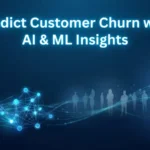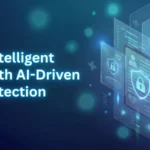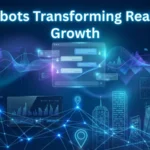HR operations are characterized by extensive documentation, repetitive tasks, and talent management. The scope of automation in this field is high. However, before implementing generative AI in HR operations, it is important to understand the causes, benefits, use cases, and challenges associated with it. So, in this blog, we shall discuss the present and future of gen AI in HR operations.
Let us start with the numbers. What does the adoption of Gen AI in HR look like? According to Market research, the generative AI market in HR is projected to reach USD 1926 million by the year 2033. This suggests a compound annual growth rate (CAGR) of 15.4% from 2024 to 2033. These numbers make it obvious that generative AI in HR operations is not just a trend, but the new normal. The automation of HR processes with artificial intelligence is transforming the talent management system.
What is Generative AI, and how does it work?
Generative AI is a branch of artificial intelligence capable of generating original content. This content can be text, images, audio, video, and code. The characteristic of original content creation is driven by underlying technologies like Generative Adversarial Networks (GAN) and Large language models. They leverage large datasets and complex neural networks to generate realistic content.
Generative AI Features Regarding HR Operations
Generative AI, particularly Large language models, offer features that suit the document-heavy and communication-intensive nature of HR operations. Let us see some capabilities of Generative AI that are beneficial to HR.
Natural Language Generation
Generative AI can produce text content that adheres to the context of the prompt of inputs. This feature can be utilized in creating personalized job descriptions, offer letters, and handbooks. It can also expand key pointers into detailed reviews during employee review sessions.
Text Summarization
Generative AI can summarize long texts into shorter versions or pointers while retaining their meaning and important information. This feature can summarize and simplify legal documents, contracts, and candidate profiles to streamline recruiter activity. Generative AI can also simplify meeting pointers and create enhanced and useful minutes of the meeting (MOM ).
Data Synthesis and Interpretation
This interesting feature allows generative AI to interpret and synthesize data from other systems. For instance, generative AI can incorporate exit interview points in trend reports, interpret employee surveys for sentiment analysis, etc.
Semantic Search
Instead of searching for the exact query words, semantic AI understands the intent and provides accurate results. This reduces the HR helpdesk load by answering frequent queries on the platform itself.
Virtual Assistant/Chatbots
Powered by NLG and Semantic AI, virtual assistants or HR chatbots can provide 24/7 employee assistance regarding payroll, attendance, etc. These chatbots can also be utilized to address onboarding queries for new employees.
Applications of Generative AI in HR Operations
Now that we have briefly understood the capabilities of Generative AI in HR operations, it is easier to understand its use cases. Let us check the processes that can benefit from the adoption of gen AI in HR.
Talent Acquisition & Recruitment
The first use case of generative AI in HR operations is in the recruitment process. Gen AI can draft job descriptions, screen resumes, and shortlist candidates based on set criteria. This helps in streamlining the initial process of hiring. It can also draft personalized emails for candidates to enhance their communication experience. Apart from this, gen AI can simulate interviews to assess candidates’ skills and suitability for the company.
Onboarding and Training
Generative AI can personalize the entire onboarding and training journey through custom emails, tutorials, and induction material. It can directly convert company details data into training material or videos, saving content creation time. Interactive AI assistants can answer queries of new hires through learned company data and natural language processing.
Engagement & Internal Communication
AI can conduct employee surveys, pulse checks, and predict employee behaviours. It can also perform sentiment analysis on internal email communication for better forecasts. This helps in keeping employees engaged and proactively preparing the HR team for employee retention.
Performance Management
Adoption of Gen AI in HR streamlines and enhances the performance management of employees. Generative AI can synthesize performance data from all sources, like peer reviews, achievements, and dashboards. It can also guide employees towards upskilling in specific fields, suggest improvements, etc, based on real-time performance reports.
E. HR Policy & Compliance
Generative AI in HR operations also enhances the HR team’s functioning by providing useful insights and analysis. It can translate and summarize legal documents, synthesize and draft complete HR reports, etc.
Benefits of Generative AI Solutions in HR
The above-mentioned applications help automate several HR processes. The primary benefits of integrating generative AI in HR operations are efficiency, personalization, cost reduction, scalability, and data-driven insights. More automation means less manual work, leading to faster work completion. Generative AI enhances personalization to tailor a better experience for both candidates and employees. AI also reviews performances with a neutral and just approach, unlike the probability of biases in human interaction. Be it a small organization planning to scale or a large one, Generative AI solutions are scalable and can easily handle a huge amount of HR data. With access to organization and employee data, Gen AI in HR provides data-driven insights through analysis and helps make more informed decisions.
Challenges in the Adoption of Gen AI in HR
Integrating generative AI in HR operations has its benefits, but it also presents some challenges. These challenges should be discussed and addressed while planning to adopt AI solutions. The major challenges include:
-
Biases
Any artificial intelligence tool or system relies on data for its functioning. If the training data is skewed, the output it generates will also show biases. Another issue with biases is that AI can autonomously amplify biases. To ensure fair results, human supervision and correct data should be utilized.
-
Loss of Human Interactions
With more and more automation, human interactions become limited. Loss of human interaction also results in less empathetic relations with employees.
-
Data Privacy and Security
With a large amount of data, especially employee data, security is an important concern. Any unintended use or data sharing should not be a concern with AI use. It is crucial to select reliable AI development companies to ensure data privacy and security.
-
Integration with Existing Systems
The initial integration of generative AI in HR operations can be expensive and might be challenging. With a legacy system not being able to support advanced technology, the integration of AI tools might demand new infrastructure as well. Make a clear and detailed generative AI strategy to address every roadblock practically.
-
Ethical Considerations
There are always ethical concerns regarding the use of AI. It is important to create strict guidelines regarding the responsible use of AI tools in HR operations. Any unfair practice or adulteration in training data should be monitored well.
Conclusion
Adoption of Gen AI in HR operations is increasing with each passing day. Artificial intelligence has made its place in almost every sector, and HR operations is one of the fields where AI shows expertise. The implementation of AI solutions requires experienced service providers like AnavClouds Analytics.ai. They provide excellent generative AI services to suit your organization’s needs. Book a demo with us to prepare your company for the AI-powered future.
FAQs
How is Generative AI used in HR?
Generative AI can be used in HR for drafting personalized emails and job descriptions, for weekly email automation, to improve employee engagement, and to review performance.
What is the primary advantage of using generative AI in HR operations?
The primary advantage of using generative AI in HR operations is that it makes HR processes productive, precise, and personalized.
What kind of content can generative AI generate in the context of HR processes?
Content like job descriptions, personalized emails, contracts, performance reports, employee handbook, etc, can be generated for HR processes with generative AI.
What are the two main generative AI models?
The two main generative AI models are VAEs (Variational Autoencoders) and GANS (Generative Adversarial Networks).
Who owns generative AI output?
The user owns both the input and output of generative AI. This means that if you generate something from AI, it becomes your creation.



